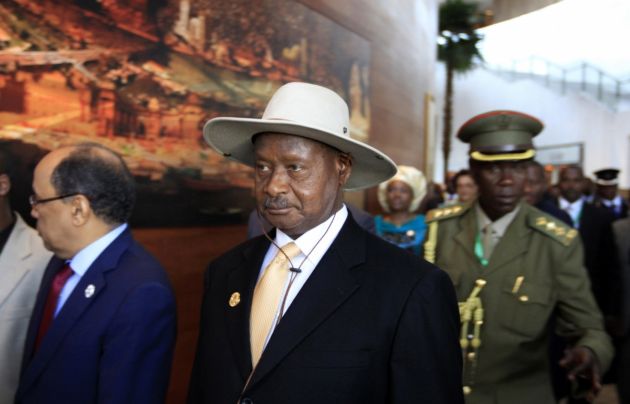Lawmakers, church urge Uganda to apply land policy giving women access to land

A Catholic Church group and lawmakers a Uganda parliamentary committee are calling on the government to implement its national land policy to empower local women to gain access to land.
Parliamentary physical planning committee vice-chair, Simon Peter Aleper, rebuked the government. He said it had failed to apply and promote equitable access and distribution of land to marginalized groups especially, rural women.
"There is need to revisit the land policy and I wonder why government allows some fewer richer people own large chucks of land, at the expense of the majority poor ones," said Aleper.
"The current policy does not distribute land equitably. It gives more powers to foreign investors and the few richer ones acquire more land, compared to the poor ones," Aleper explained, New Vision reports.
Aleper said land in Uganda is not scarce, as some people assume, but noted that greedy people who amass bigger chunks of land make it so.
In February 2013, the cabinet of President Yoweri Museveni approved the National Land Policy.
This looks at the role land plays in national development as well as issues of landownership, distribution, use, alien ability, management and control.
The policy recognizes four tenure systems including mailo (a local land tenure system that is seen favoring the elite), freehold, leasehold and customary tenure.
Another parliamentary member, Michael Ayepa said that Ugandans need needs to be made aware of how important it is for women to own property and land.
This is because they take care of the family in the event that the husband departs and contributes a greater role to the food basket.
The lawmakers were speaking during the launch on April 15 of a research book on access to land usage and food security Tuesday in Kampala.
The national Catholic commission for justice and peace conducted the research along with the Kenyan-based Jesuit Hakimani center, an NGO that fights poverty, fosters good governance, leadership and development in Kenya.
The Secretary General of the Episcopal Conference in Uganda Monsignor, John Baptist Kauta said, "Women are still held back by cultural norms, poverty, wars and low levels of sensitization and as a result they have failed to achieve their full potential."
Kauta said women, especially in areas where there is a customary land tenure system, persistently face discrimination which has affected agricultural production in Uganda.
He said if corrected the land policy will help streamline women's access to land.
The bishop noted the women have face difficulties getting access to land since most societies are patriarchal and do not allow females inheritance.
He also said he regretted that unknown people had encroached on most of the church-owned land.
"The Catholic Church does charity works and allows developmental activities; however, the church has the legal rights to own land and sue trespassers."
The Uganda Bureau of Statistics says about 80 per cent of Ugandan land is held under a customary tenure system that leads to most people acquiring it through inheritance and succession.
